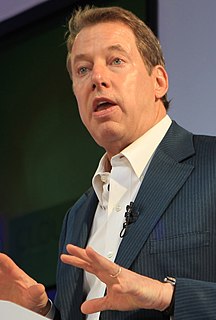A Quote by Benjamin Graham
It is no difficult trick to bring a great deal of energy, study, and native ability into Wall Street and to end up with losses instead of profits. These virtues, if channeled in the wrong directions, become indistinguishable from handicaps.
Related Quotes
Wall Street owns the country. It is no longer a government of the people, for the people and by the people, but a government for Wall Street, by Wall Street, and for Wall Street. The great common people of this country are slaves, and monopoly is the master…Let the bloodhounds of money who have dogged us thus far beware.
If you try to avoid every instance of peer pressure you will end up without any peers whatsoever, and the trick is to succumb to enough pressure that you do not drive your peers away, but not so much that you end up in a situation in which you are dead or otherwise uncomfortable. This is a difficult trick, and most people never master it, and end up dead or uncomfortable at least once during their lives.
OK, so here's the deal. First of all, "The Wall Street Journal" was bought for $5 billion. It's now worth $500 million, OK. They don't have to tell me what to do. "The Wall Street Journal" has been wrong so many different times about so many different things. I am all for free trade, but it's got to be fair. When Ford moves their massive plant to Mexico, we get nothing. We lose all of these jobs.




































